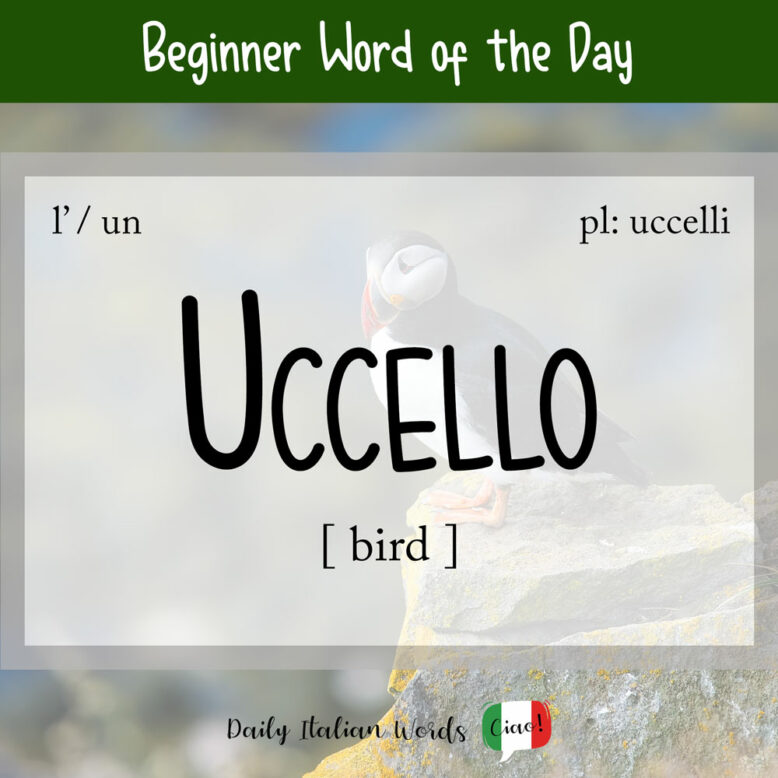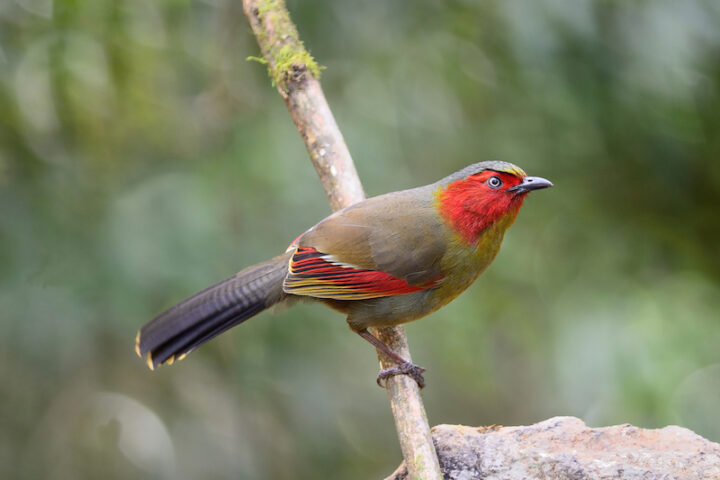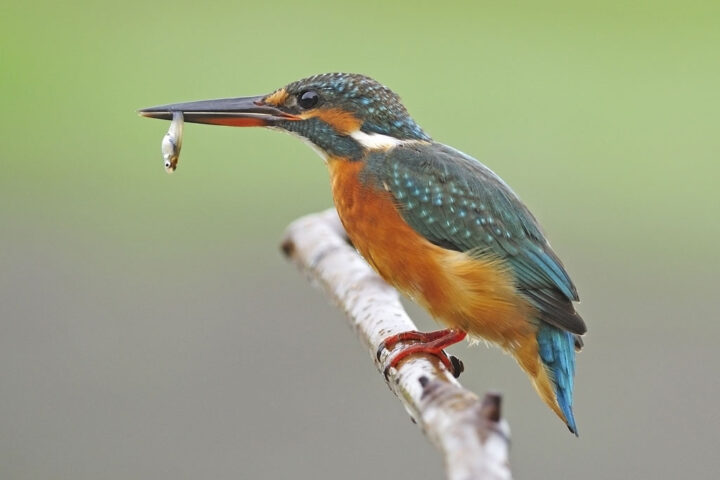The word for bird in Italian is uccello (masculine, plural uccelli), and it comes from the Latin aucellus. By transforming it into its diminutive form uccellino, you get the word for baby bird, fledgling or nestling.

Below are various kinds of birds with which you might be familiar:
- uccello del paradiso = bird of paradise
- uccello rapace = bird of prey
- uccello migratore = migratory bird
- uccello marino = seabird
- uccello acquatico = waterfowl
- uccello notturno = nocturnal bird
L’uccello è entrato dalla finestra.
The bird came in through the window.

Here are some names of the most popular birds in Italy accompanied by some trivia:
Cigno
Swan
Gabbiano
Seagull
Martin Pescatore
Kingfisher
(pescatore means fisherman, Martin comes from the name Martino)
Piccione
Pigeon
Gazza
Magpie
(also known as Gazza Ladra, where ladra is the feminine for thief, because the bird likes to collect shiny objects and store them in its nest)
Merlo
Blackbird
(it also means sucker, foolish, and is the name of a variety of fish)
Passero italiano
Italian sparrow
(the feminine passera also means a woman private parts)
Cinciallegra
Great tit
Rondine
Swallow
(the famous idiom una rondine non fa primavera translates to one swallow does not make a summer, meaning that one instance of an event doesn’t indicate a trend, it’s not enough to come to a conclusion)
Airone
Heron
Tortora
Dove
Pettirosso
Robin
(pettirosso means redbreast and the bird is also called robin redbreast)
Storno
Starling
Codirosso spazzacamino
Black redstart
(spazzacamino is a person that sweeps chimneys, the bird is called this way because it often visits chimneys and roofs during the day)
Fringuello
Chaffinch
(cantare come un fringuello = to sing with a clear, limpid voice)
Ballerina bianca
White wagtail
(the name ballerina refers to the way the bird moves its tail while walking)
Picchio
Woodpecker
Civetta
Owl
(l’auto civetta – lit. the “owl car” is a police car without any visible marks that agents use to tail someone without being noticed. It comes from the owl’s characteristic of seeing in the dark and being very silent).

The corresponding verb is uccellare which in a literal sense means to fowl or to catch/snare birds and in a figurative sense, to fool or dupe someone. Similarly the augmentative uccellone can mean both big bird (literal) or a fool or sucker (figurative).
Someone who evades capture or makes themselves untraceable such as a runaway or a fugitive may be called an uccel di bosco (bird of the woods). The expression derives from the idea that birds in the woods can easily avoid being seen by hiding in the trees. It is mostly used in reference to people fleeing the police but may also be used in playful contexts as a synonym for being free.
Il criminale si è reso uccel di bosco insieme ad altri due detenuti.
The criminal disappeared into the undergrowth along with two other prisoners.
Last but not least, uccello is also a slang term for a male’s private parts.
Expressions featuring ‘uccello’ in Italian
Ad ogni uccello (il) suo nido è bello
Literal translation: Each bird thinks its own nest is beautiful.
English meaning: There’s no place like home.
Essere un uccello in gabbia
Literal translation: To be a bird in a cage
English meaning: To be in captivity, or to feel you don’t have enough freedom
(Fare qualcosa) a volo d’uccello
Literal translation: to do something with a bird’s eye view
English meaning: (to do something) quickly without going in-depth
Fare / Essere l’uccello del malaugurio
Literal translation: to be a bird of ill-omen
English meaning: to be a prophet/harbinger of doom, to bring bad news
Heather Broster is a graduate with honours in linguistics from the University of Western Ontario. She is an aspiring polyglot, proficient in English and Italian, as well as Japanese, Welsh, and French to varying degrees of fluency. Originally from Toronto, Heather has resided in various countries, notably Italy for a period of six years. Her primary focus lies in the fields of language acquisition, education, and bilingual instruction.


